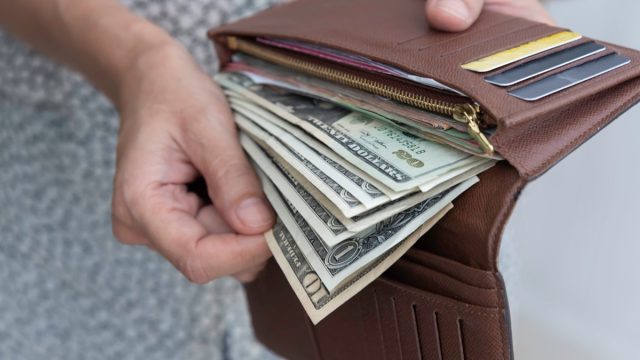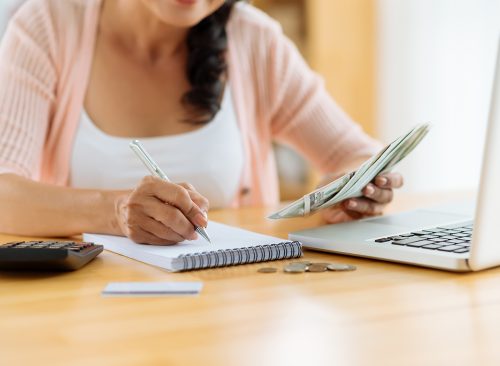5 Common Money Mistakes You Could Be Making Daily, According to Financial Experts
Fixing these bad habits will benefit you in the end.

Managing your finances is no easy feat. You may assume you're fine as long as you're not making any major blunders with your money, but that's not always the case. The small spending errors you make everyday can really add up over time—and before you know it, you could be in over your head with debt and bad credit. To help ensure you're setting yourself up for a good financial future, we talked to experts to find out what you should and should not be doing right now. Read on to find out what are the five common money mistakes you may be making daily.
READ THIS NEXT: Never Use Your Credit Card for These 6 Purchases, According to Financial Experts.
1
You don't always take time to shop around.

If you have the money to cover it, you might not always think twice before dropping a decent chunk of cash on something you want. But this is a common mistake among consumers, Michael Collins, CFA, a financial professor at Endicott College in Beverly, Massachusetts, tells Best Life. "Not shopping around can lead to paying more than necessary for products and services," he explains.
Even if you don't want to dedicate the time or assume there's nothing cheaper out there, it's still important to check. "People should comparison shop before making major purchases and take the time to research different products and prices," Collins says.
2
You're buying more than you need online.

Online retail sites often try to suck shoppers in with offerings like, "Free Shipping On Orders Over $50." While many of us will start adding extra things to our cart in order to reach that minimum, Trae Bodge, a money-saving expert, says it is a major mistake to buy more than you need or want so you can avoid a shipping fee.
"We all love free shipping, but that doesn't mean we should overspend just to get it," Bodge says. "Instead, add items to your online cart over time until you meet the free shipping threshold. Or, order online and pick up curbside."
3
You're not checking your reoccurring payments.

You may glance over little Apple or Amazon charges on your account, assuming they're a reoccurring payment for some kind of subscription or membership. But Marcus Arcabascio, the chief financial planner of CustomerServiceNumber, says many people make the mistake of letting never-ending payments go by unchecked. "This means that people continue to pay for things long after they have stopped using them," Arcabascio warns.
Dmytro Kondratiev, a tax expert and international lawyer, recommends people avoid paying for unused subscriptions and memberships by splitting different ones with your friends and family. "Many services offer family plans or multiple profiles that allow you to share access while reducing individual expenses," he explains.
For more financial advice delivered straight to your inbox, sign up for our daily newsletter.
4
You rely on credit cards for daily expenses.

Credit cards certainly have many useful benefits. But this doesn't mean you should be relying on them for your everyday expenses, says Daniel Colston, a certified financial planner and the CEO of Upward Financial Planning. This mistake can easily result in "high-interest charges and increased debt if not managed carefully," according to Colston.
"Unfortunately, many people turn to credit cards for convenience or rewards but fail to pay off the balance in full each month," he explains. To avoid racking up interest charges, Colston recommends you use your debit card or cash for any daily spending needs and always pay off your credit card balance in full each month. "If you're unsure whether your spending is affected, we recommend you consider cutting back on using credit cards for a period of time to evaluate the matter," he adds.
5
You're not tracking your spending habits on a small scale.

Many people create monthly budgets for themselves. But Andy Kalmon, a financial expert and the CEO of Benny, says it's also important to look at your spending from a day to day perspective. "If you're not tracking your habits along the way, you may not reach your goals," Kalmon warns.
After all, it could be easier than you think to go over your monthly budget if you're not paying close attention to what purchases you're making every single day. As Jason B. Ball, a certified financial planner and the founder of Jason's Fin Tips, further explains, many people make the mistake of "not understanding that small spends add up to large spends."
Best Life offers the most up-to-date financial information from top experts and the latest news and research, but our content is not meant to be a substitute for professional guidance. When it comes to the money you're spending, saving, or investing, always consult your financial advisor directly.





















